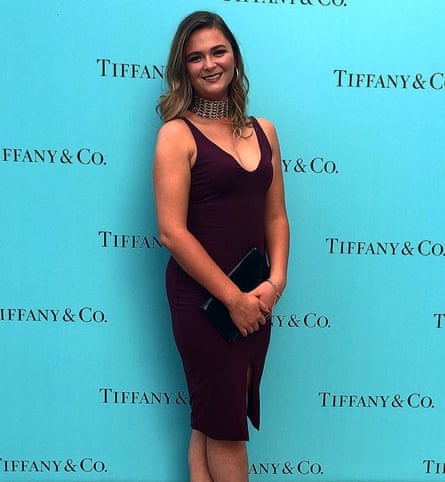Nothing messes you up quite so royally as becoming Insta-famous.
It’s just as bad as genuine fame, only without the public fawning or free Fendi sports bras to soften your descent into self obsession, insecurity and casual bitchiness.
Of course you don’t realise it. You’re busy preaching love, harmony and laxative tea. Plus you’re distracted by every brick wall or passing dog that you could drag in to your #candid shots of you laughing maniacally while holding a conveniently placed (and delicious!) protein shake.
I used to be Insta-famous and it was one of the worst things to happen in my 20s. While I did gain a very photogenic selection of free protein powder, it was probably one of the most gruelling, confusing and miserable times of my life.
It happened almost accidentally. A few years ago, I had freshly graduated from university and was busy bumming around my student flat when I got a call asking me to move to New Zealand and present on the flagship daily breakfast TV show. I was 21, it was my first real job, and I didn’t even have an Instagram then let alone any aspirations of pastel filtered fame.
So I said yes, moved countries and started an account with a vague idea it’d be good to have “for my brand”. And by virtue of being on national TV every morning, I went from nothing to having over 8,000 combined followers across my “channels”.
I became a bonafide influencer, getting sent everything from fancy undies to cell phones, and curating every moment of my peachy life with painstakingly casual captions. It was awful. Primarily because I was awful.

Insta-fame has a phenomenal, if unsurprising, capacity to turn you into a dick.
We all know that real fame is dangerous. It showers you with attention, making you feel as though you are incredibly important and interesting because all these people are paying attention to you.
Instafame does all of this. I became convinced that I was so fascinating. If I was the centre of attention on my phone, that should translate into being the centre of attention in real life. It makes you the worst kind of dick: entitled, self obsessed, and incredibly dull because the only thing you think about is yourself. And it wasn’t helped by being in my 20s and so naturally inclined to think the world revolves around me anyway.
But it’s also a particularly vicious type of fame because it’s so insecure. Insta-fame is right at the bottom of the glitter hierarchy, widely acknowledged by the genuinely famous as the most fickle and unearned glory – even more than Love Island. You can see where they’re coming from. Most real world famous people earn fame by doing their job really well. But for influencers, your butt shots are your business. So we’re are constantly aware of the tenuousness of our fame, which makes us even more desperate to hold on to it.
It’s also the most numbly exhausting job I’ve ever done. Normally it takes at least five hours to do a professional photo shoot. When you’re an influencer, you need this level of quality but don’t have a team behind you so it becomes incredibly time consuming.
You get trapped in your own triviality, in the mind numbing packaging and distribution of the minutiae of your day. It’s real joy killer. Normally you take a photo because you want to capture a great moment, right? But as an influencer you have to manufacture those moments, stripmining the fun out of coffee dates because you’re managing the scene like Annie Leibovitz – if Annie Leibovitz was a basic bitch with a passion for latte art.
But the very worst, most dangerous part of instafame in your 20s is that it totally messes up your character development. Not only did it make me self obsessed, but it indulged my very worst qualities.
Social media feeds those darkest parts of every personality, encouraging you to rant on Twitter, brag on Facebook, or be vain on Insta. Vanity sells on the ‘Gram. The hotter the pic, the better it does, so the more time you spend in the mirror creating them. Staying Instafamous relies on you mining the depths of your own narcissism.
The problem is that your 20s you’re busy working out who you want to be. A big part of that process is managing and squashing down the dark parts of yourself to make more room for your better parts. But Instafame fed my own vanity and insecurity until it became almost impossible to control them and make space for my better self.
So I stopped. I’ve still got Instagram, but I’m officially an ex-influencer. I stopped posting as much and lost a lot of followers, and I deleted most of my classic influencer shots in a fit of self disgust.
I realised in order to stay Insta-famous I’d have had to nurture the most pathetic parts of my own psyche. And honestly, no amount of free ombre activewear is worth that.
Verity Johnson is a freelance journalist, opinion columnist and TV presenter who moonlights as a part time comedic rapper, Verit$izle (the dollar sign is silent)
